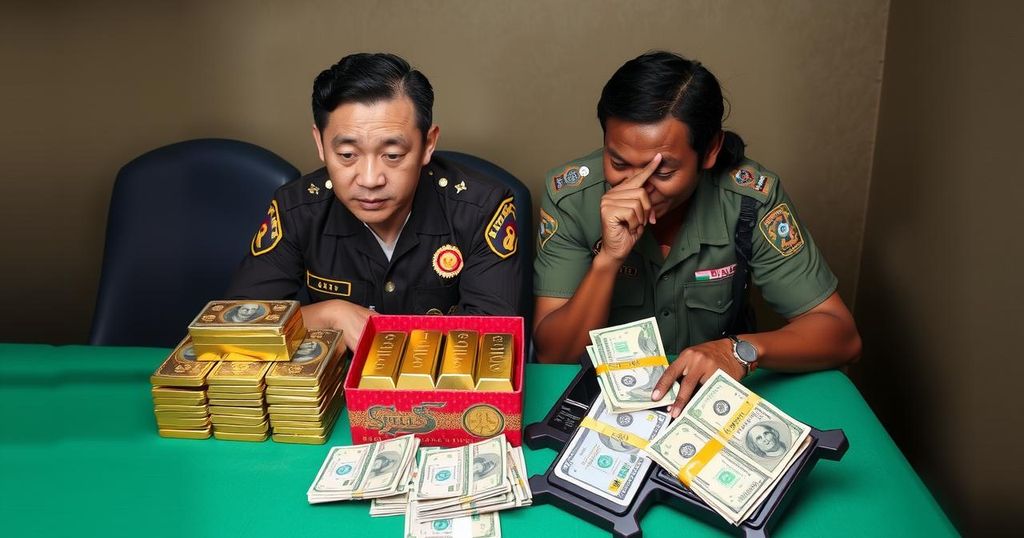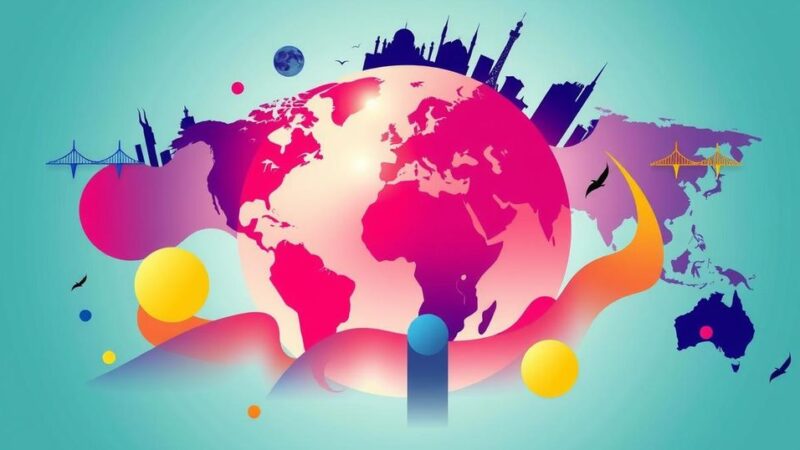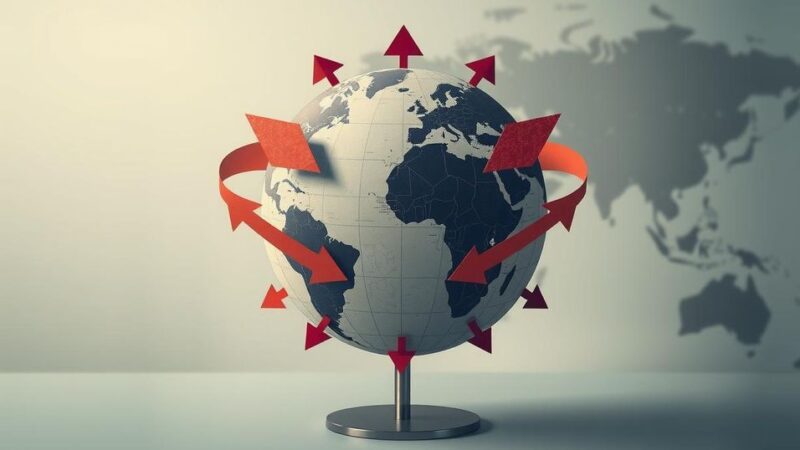Three Chinese nationals have been arrested in eastern DR Congo with twelve gold bars and $800,000 in cash. The operation was kept secret due to the recent release of another group of Chinese linked to illegal mining. The DRC is rich in mineral resources, but its wealth has led to exploitation and instability, often fuelled by foreign entities and local militias.
In an operation shrouded in secrecy, three Chinese nationals were apprehended in the eastern Democratic Republic of Congo (DRC) while allegedly transporting twelve gold bars alongside $800,000 in cash, as reported by local authorities. South Kivu’s Governor, Jean Jacques Purusi, indicated that the operation was discreet, particularly following the recent release of another group of Chinese linked to an illegal gold mining operation. The gold and cash were discovered concealed beneath the vehicle’s seats during a thorough search in the Walungu area, close to the Rwandan border.
The eastern region of the Democratic Republic of Congo is substantially rich in natural resources, including gold, diamonds, and critical minerals essential for manufacturing batteries. This wealth, however, has historically attracted foreign exploitation, contributing to prolonged instability in the region exacerbated by militia control over mining operations. The endemic corruption and mismanagement in the mineral sector have seen foreign gold dealers collaborate with influential figures within the capital, Kinshasa, raising concerns about illegal mining practices and the socio-economic implications therein.
The arrests of the Chinese nationals highlight ongoing issues related to illegal mineral extraction in the DRC, reflecting a broader pattern of exploitation that has persistently undermined the country’s stability. This incident underscores the challenges faced by the Congolese government in regulating the mineral sector and combating illegal trade practices tied to foreign nations. Furthermore, it casts light on the detrimental effects of these activities on local communities and the environment, particularly in conflict zones.
Original Source: www.bbc.com






